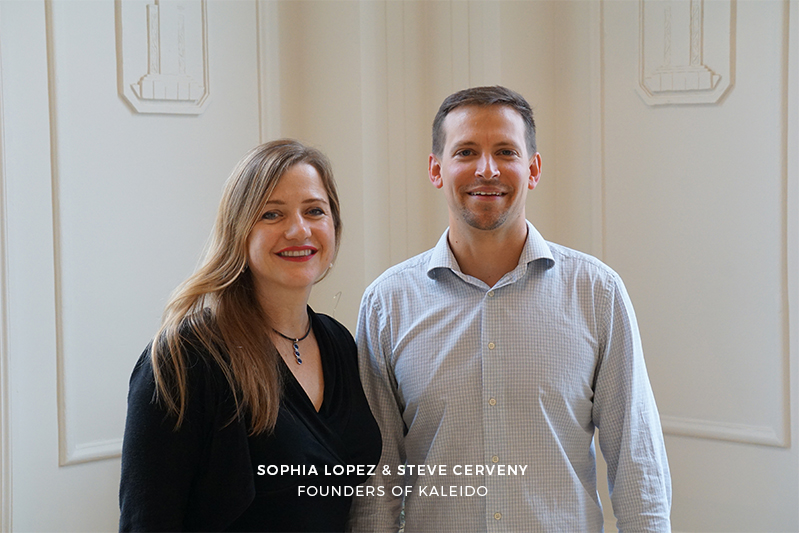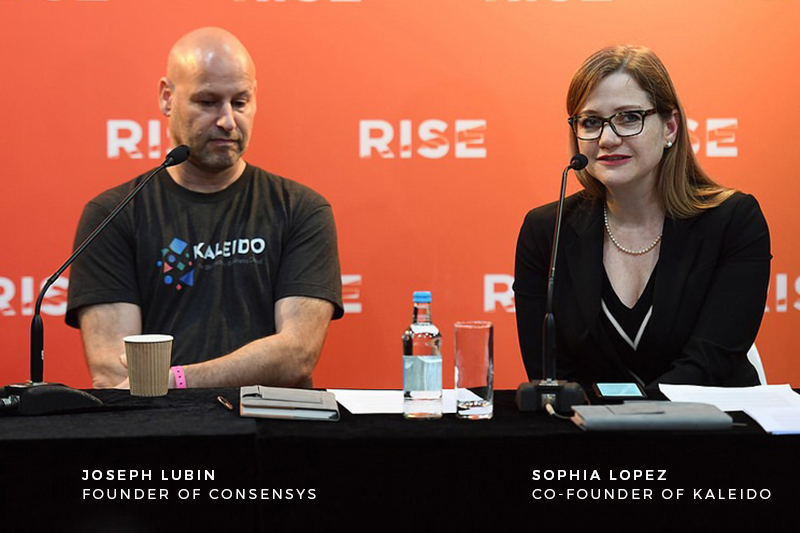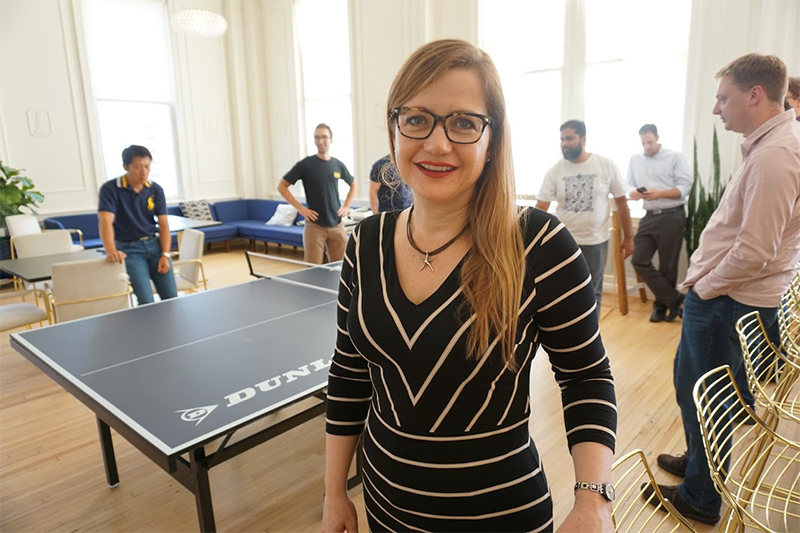Sophia Lopez, the co-founder of enterprise blockchain solutions company Kaleido, talks us through how blockchain is going to transform the world by making transactions between enterprises more simple, secure and hassle-free.
2018 is the year for blockchain. More than just a buzzword, the key technology behind cryptocurrencies like Bitcoin and Ether has been hailed as a technology that could change the world as drastically as the internet and steam engines. The question, however, is how can general public and enterprises benefit from it? We sit down with Sophia Lopez, the co-founder of the ConsenSys-born blockchain platform Kaleido to learn how she thinks blockchain is going to transform companies, industries, and society for the better.

Sophia co-founded Kaleido, and launched its Blockchain Business Cloud (a Software-as-a-Service platform) in May 2018 with her colleague Steve Cerveny. Incubated by ConsenSys, the world’s largest blockchain pure player for decentralized applications, Kaleido specialises in providing blockchain solutions for enterprises. In explaining what blockchain is, the Harvard engineering graduate begins, “when people think of cryptocurrency transactions, they’re thinking of a public blockchain. It is a global online ledger which allows open access and validation by anyone with an internet connection and it is distributed across a network. You can transfer anything of value among a multitude of parties using a blockchain, whether it is cryptocurrency or even patient medical records and certificates, without the need for a mediator.”
“But there’s also private or permissioned blockchain for enterprises or consortiums, who’d like to transact with known parties and without having to disclose confidential data to the public,” Sophia continues. The parties using it are able to confirm the legitimacy of every transaction and authorise each step. Records in the blockchain cannot be tampered with due to heavy cryptography, guaranteeing the security of their data. For Sophia, blockchain’s true value lies in its capacity to streamline transactions. “It’s really taking existing corporate relationships onto blockchain, making them cheaper, faster and removing some of the risks,” she explains.“A lot of companies are looking at blockchain as the next generation of digital technology for transactions,” Sophia adds.
Banks such as UniCredit and UBS now partner with US tech company Ripple to harness blockchain technology to power payments in real-world currency and Nasdaq have also jumped on board to explore the technology. However, for many, just how to incorporate it into their existing structure is still unclear. According to Gartner’s 2018 CIO survey, only 1% of over 3000 company CIOs indicated any kind of real blockchain adoption. As a former director for IBM’s blockchain platform, Sophia has seen this first hand in working with hundreds of enterprises and cites complexity as the major problem they encounter. “Blockchain is hard,” she declares. “For companies to establish their own blockchain network involves a rocky and steep learning curve.”

For enterprises to even get started, not only do they need to put in huge investment, but they also have to overcome multiple roadblocks. “When companies set up a blockchain themselves, the process is labour-intensive, time-consuming and skills dependent. Even if companies navigate this, another challenge awaits: how to not only establish a business network in blockchain (aka. Consortium), but manage its distributed ownership and governance in this new shared IT environment. Managing changes in your own enterprises and in a distributed network are totally different,” Sophia explains.
And then, “the final challenge arises when enterprises put their products out in the market. Then, they have to integrate their existing database and applications into the new blockchain network, while running it securely, reliably and ensuring that it is able to scale, from say a 5-business network to one with 50 or even 500 partners,” says Sophia. “The entire process takes months, if not years. And by the time companies have already spent millions trying to tackle the technical problems and writing thousands of lines of custom code, their blockchain system is already obsolete because the technology is evolving so quickly.”
It’s due to this complexity that Kaleido was founded. Sophia reveals “Our mission is to solve these challenges in a single solution. With Kaleido, we hope to radically simplify the entire journey and accelerate enterprise adoption of blockchain so that society can fully benefit from these new decentralized models and technologies.” In collaboration with ConsenSys and Amazon Web Services (AWS), Kaleido allows companies to tailor-make and run their own permissioned consortiums in the AWS Cloud ecosystem. So, instead of having to build and run a blockchain themselves, enterprises can now rely on Kaleido to do it for them. “Kaleido takes care of the core technology, so enterprises can focus on the business layer with their industry expertise,” says Sophia.

Recently, Kaleido’s Blockchain Business Cloud service has extended beyond Europe and the US to Sydney and Seoul, making it available for companies in the Asia Pacific region. Within two short months of its initial launch, Kaleido has attracted a wide range of companies, from land registry to IP rights, financial inclusion for the unbanked and self-sovereign genomics.
Although the project focuses primarily on the application of blockchain to enterprise use cases, what Sophia and her team of experts hope to ultimately achieve is to accelerate the societal benefits of the technology. “A lot of companies we’re working with are projects that give back and are geared toward societal impact,” she explains. “For instance, we are working with Caifeng Gene, a Shanghai-based precision medical company, to enable their patients to gain greater control over their own data and establish an inter-institutional connection with hospitals, biotech and pharmaceutical companies. The facilitation of data exchange, in this case, not only helps the company with their medical research but also helps diabetes patients across China.”
The greatest potential of all this technology can only be manifested through its application and real-life use, where people can actually see the fruit. ‘What Salesforce did for CRMs (Customer relationship management), Kaleido will do for blockchain’– is Sophia’s analogy for what the venture is all about. “Before the birth of Salesforce (a leading sales and marketing software company), customer relationship management was an expensive, slow-moving process. By taking CRM into the cloud system, Salesforce lowered the barrier to entry, so companies could get to see the benefits faster as they went along. We are doing the same with Kaleido.” Because, after all, what counts as good technology is all to be found in its usage and effects, not simply its ideas and buzz.
Kaleido’s service is currently offered for free, you can check it out here: https://kaleido.io.
Related Articles
Blockchain to Power a Greener World
Triip: This Tech Entrepreneur Sold His House to Fund His Singaporean Blockchain Firm
Pundi X: The FinTech Firm Helping People Across Asia Regain Control of Personal Data





